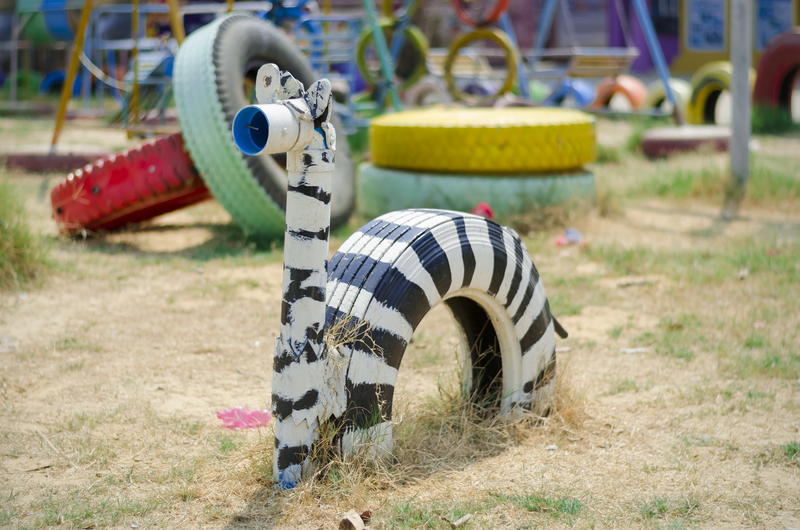Sustainable Transport: London Tube's Brake Energy Trial
Posted on 29/04/2024
The London Tube, also known as the Underground or simply the Tube, is one of the most iconic and important modes of transportation in the bustling city of London. However, with over 1.35 billion annual journeys and a network spanning across 11 lines and 270 stations, the Tube has been facing several sustainability challenges, particularly in terms of energy consumption. In an effort to address this issue, Transport for London (TfL) has launched a Brake Energy Trial that aims to harness energy from braking trains and use it to power other trains on the network. Let's delve deeper into this innovative project and explore its potential impact on sustainable transport.
What is the Brake Energy Trial?
The Brake Energy Trial is a project initiated by TfL in partnership with Bombardier Transportation, a leading manufacturer of trains and related equipment. It involves installing special equipment called regenerative braking systems on a fleet of rolling stock used in the Piccadilly Line of the London Tube network. These systems capture energy that is normally lost during braking and convert it into electricity that can be used to power other trains on the same line. The trial, which began in 2018 and is expected to run until 2020, aims to reduce energy consumption by up to 5%, saving about 5,000 tons of carbon dioxide emissions per year.

How Does it Work?
Regenerative braking systems work by using electric motors to slow down trains instead of traditional friction brakes. When a train decelerates, these motors act as generators and transform kinetic energy into electrical energy which is then fed back into the third rail that powers the trains. This excess energy can then be utilized by other trains on the same line or stored in batteries for later use. This way, not only is energy being saved, but there is also less wear and tear on brake pads and less pollution generated through traditional braking methods.
Benefits of Brake Energy Trial
One of the key benefits of the Brake Energy Trial is its contribution to sustainable transport. By using regenerative braking systems, the Tube can significantly reduce its energy consumption and carbon footprint. This not only helps in meeting TfL's target of becoming a zero-carbon organization by 2050 but also aligns with London's goal of becoming a carbon-neutral city. The project also has financial benefits as it reduces operating costs associated with energy consumption and brake maintenance. It has the potential to be implemented on other lines of the network, further increasing energy savings.

Challenges and Limitations
As with any new technology, there are a few challenges and limitations to consider. The main challenge is the cost involved in retrofitting older trains with regenerative braking systems. While this may prove to be a significant investment initially, the long-term benefits and savings make it a worthwhile endeavor. Another limitation is that this system can only be implemented on electrified tracks, which means that underground sections of the Tube won't benefit from it. Additionally, there may be some logistical challenges during peak hours when trains are running at full capacity, making it difficult to store excess energy.
Tips for Sustainable Transport
Apart from initiatives like the Brake Energy Trial, there are several things individuals can do to contribute towards sustainable transport:
1. Opt for public transport: Using public transport instead of personal vehicles reduces traffic congestion, saves fuel and reduces emissions.
2. Walk or cycle: For short distances, walking or cycling is an eco-friendly option that also keeps you active and healthy.
3. Carpooling: Sharing rides with others going in the same direction reduces the number of cars on the road and saves fuel.
4. Use electric or hybrid vehicles: If you're considering purchasing a new vehicle, go for an electric or hybrid one which produces fewer emissions.
5. Avoid idling: Idling your car for more than 10 seconds wastes fuel and pollutes the air unnecessarily. Turn off your engine if you're waiting for more than a minute.
Takeaways
Sustainable transport is crucial for reducing carbon emissions and mitigating the impact of climate change. The London Tube's Brake Energy Trial is an excellent example of how innovative technology can be used to make transport more sustainable. By harnessing energy from braking trains, this project has the potential to significantly reduce the energy consumption and carbon footprint of the Tube network.
Conclusion
The Brake Energy Trial is a step in the right direction towards making London's iconic Tube network more sustainable. With its potential to save energy, reduce emissions, and cut down on operating costs, it is a promising initiative that can have far-reaching impacts on sustainable transport. As individuals, we also have a responsibility to make greener choices and contribute towards creating a cleaner and more sustainable environment for future generations. Let's all work together towards a greener and cleaner future.

